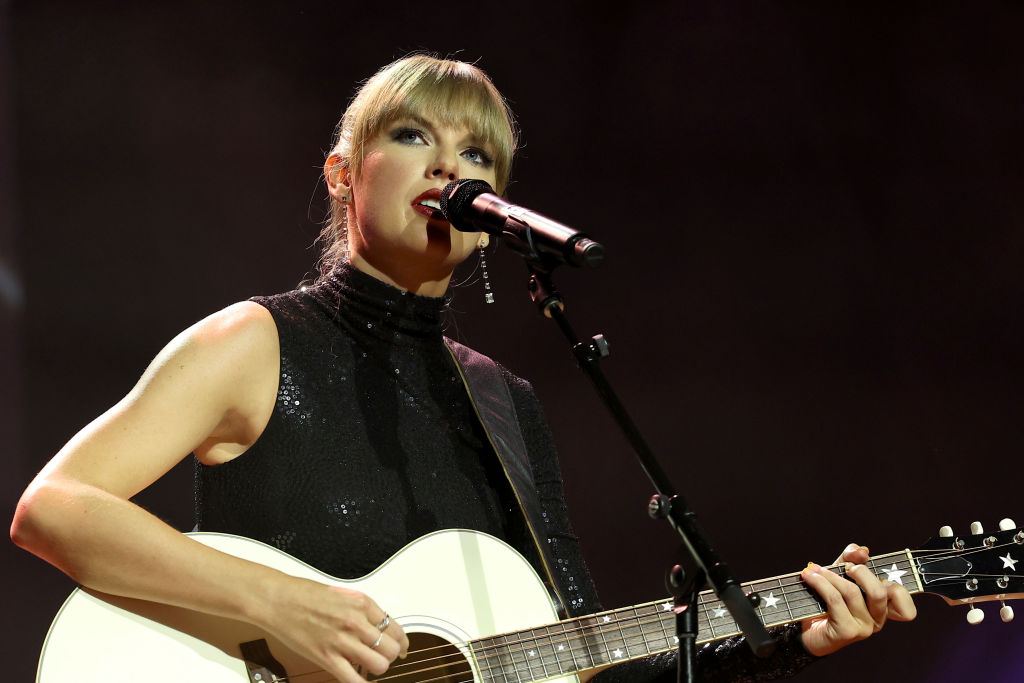Will Taylor Swift force the Federal Reserve to tighten monetary policy even more? Despite rising interest rates, above-trend inflation, and soaring household debt levels, today’s young whippersnappers are spending on Swift’s latest tour like the previous generations did on Elvis Presley and Benny Goodman concerts. This has some of the smartest men and women at the Eccles Building and in academia arguing that Swiftonomics is contributing to inflationary pressures and potentially canceling the much-anticipated recession.
The Economics of Taylor Swift
If the economy is so bad, why are Swifties packing hotels, filling up restaurants, crowding bars, and causing traffic jams? How did Chicago and Minneapolis break all-time records for occupied hotel rooms during Swift’s festivities? How did Cincinnati report $48 million in consumer spending? How did Philadelphia experience the strongest hotel revenue for the month of May since the coronavirus pandemic? Considering the amount of stimulus that transpired during the singer’s Eras Tour, it is no surprise that cities embarrassingly went out of their way to generate more dollars, whether naming the musician an honorary mayor or temporarily renaming a town Swift City.
It is Swiftonomics 101. You must buy Taylor Swift tickets instead of tucking your money under a mattress for a rainy day. Rather than spending $1,300 on groceries for the family and repairing the leaky roof, these funds can be better spent on Section 418, Row 25, seats at Levi’s Stadium in Santa Clara, CA, July 29.
Of course, it has always been a fascinating question to ponder across the marketplace whenever economic conditions appear abysmal, bleak, or putrid. If real (inflation-adjusted) wages are lagging or consumers are doling out tens of billions of dollars extra in credit card interest payments, how are they spending hundreds or thousands of dollars on World Series, WrestleMania, or Super Bowl tickets? In economics, subjective value is a concept that the worth of a good or service depends on the preferences and circumstances of the individual who consumes it.

(Photo by Terry Wyatt/Getty Images)
Since the COVID-19 public health crisis, economists have attempted to rationalize why there is still so much pent-up demand for services, resulting in rampant service inflation since the pandemic’s end. One proposal is that consumers are trimming, for example, their supermarket budget so they can afford to venture out to restaurants, the local cinema, or a Taylor Swift concert.
The other suggestion is that households still maintain their pandemic-era savings. While estimates vary, the latest projection is that Americans will completely exhaust this cushion by the fall. Yes, it might sound ridiculous to utilize this dwindling stockpile of dollars and cents on a Swift spending spree, but de gustibus non est disputandum (there is no accounting for taste). Besides, since some of the most important things in life are just too expensive, like owning a house or buying an automobile, can anyone fault the typical consumer for this reckless abandon? Swift tickets are the new avocado on toast!
Blame Swiftonomics?
In recent weeks, various publications have talked about “tourflation.” Earlier this month, CNBC ran this headline: “Taylor Swift, Beyoncé and Bruce Springsteen could be making inflation worse.” The Economist asked on July 25, “Can superstars like Beyoncé or Taylor Swift spur inflation?” Fortune asked a similar question: “Can Beyoncé, Taylor Swift, Springsteen add to inflation?” Here is a question: Is the mainstream media really falling for this nonsense? Eminent economist Murray Rothbard famously wrote that it is no crime not to be equipped with knowledge of economics, but “it is totally irresponsible to have a loud and vociferous opinion on economic subjects while remaining in this state of ignorance.”
 Overall, concert tickets have gotten more expensive, rising 6.2% year-over-year in June, according to the Bureau of Labor Statistics. They also rose 0.5% month-over-month. This trend has been caused by a variety of reasons: artists are throwing massive tours (a larger investment in more expensive labor, goods, and services), supply failing to keep up with demand, and the deterioration of purchasing power, which requires more units of currency.
Overall, concert tickets have gotten more expensive, rising 6.2% year-over-year in June, according to the Bureau of Labor Statistics. They also rose 0.5% month-over-month. This trend has been caused by a variety of reasons: artists are throwing massive tours (a larger investment in more expensive labor, goods, and services), supply failing to keep up with demand, and the deterioration of purchasing power, which requires more units of currency.
That said, the Taylor Swift economy is not exacerbating price inflation. Overseas, the mainstream press suggested that Beyonce was the root cause of the massive jump in Sweden’s May headline inflation figures. With the July consumer price index (CPI) and core CPI, which strips the volatile energy and food components, expected to climb, according to the Cleveland Fed Bank’s Nowcast model, it would not be surprising to watch the media blame it on Swiftonomics.
Grateful Dead is Better
Fed Chair Jerome Powell was recently caught attending a Grateful Dead concert, so it is unlikely he is a fan of Taylor Swift. But he might also not be a fan of having to tighten monetary policy even more because of the singer-songwriter’s national tour that some experts believe is adding to inflation challenges. In the end, Powell might be singing one of her pop songs if it means he can accomplish the ultimate objective of navigating a soft landing rather than initiating a sharp recession.



